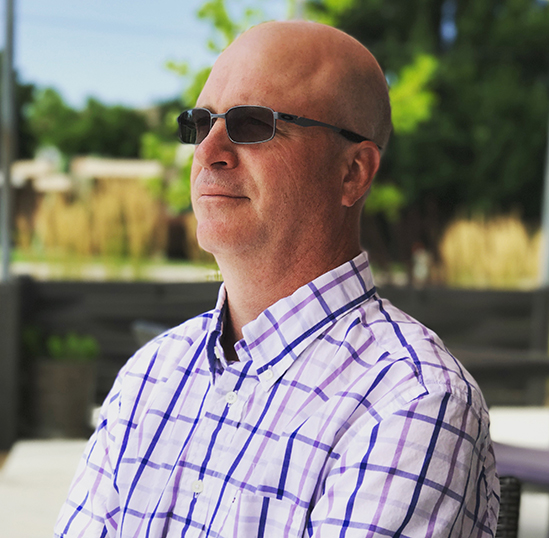Extraordinary call just part of St. Luke’s Home Health and Hospice staff's daily efforts

As the officer manager for St. Luke’s Home Health and Hospice, Tyrell Gentry has taken his fair share of phone calls from people seeking help.
“I end up handling these off-the-wall questions,” Gentry said. “When we hear from patients who aren’t involved in our services, I’m kind of the go-to guy those calls go to.”
A recent call stuck out to Gentry because of the degree of desperation coming from the caller – and the response from the staff that he works with every day.
The call came from a woman who was at her wit’s end because she was aware of an elderly woman with dementia who had tested positive for COVID-19. On top of that, the woman’s son-in-law, who had been caring for her, had died from COVID-19 complications.
Little else was known, but that’s not what mattered to Gentry.
“What mattered was this: I couldn’t even tell you the amount of stress in the woman’s voice,” he said. “She said she was on the brink of calling 911. She was just panicking.”

Gentry hung up the phone immediately knowing who he would turn to for help: Kennette McWilliams, St. Luke’s Hospice operations manager, and Kim Mills, a Home Health therapy manager.
“I knocked on their doors and told them about the call, and there was no questions from them. Just, ‘We need to handle this now,’” Gentry said.
That day, Gentry was struck by the efficiency and amount of compassion that McWilliams and Mills bring to St. Luke’s Home Health and Hospice.
“In the end, what we were able to find out was that this woman was already on another home-health service,” McWilliams said. “So, we connected directly with them and handed it back to them. But we also had plan A, plan B and plan C available for her situation.”
The outcome was rather routine, but the day left an impression on Gentry.
“I guarantee you that this isn’t the first – and it won’t be the last – time where they’ve been presented with a scenario like this and they just go out and do what they do,” Gentry said. “They bring a ton of experience, compassion and drive to take care of people. Their hearts are just so full of love.”
McWilliams and Mills both deflect those accolades, saying that their efforts mirror the work that dozens and dozens of Home Health and Hospice care workers perform daily. And most of that work is done in a completely unpredictable setting: in patients’ homes.
“It’s really an environment that we can’t control, and then you add in COVID,” Mills said. “In all other settings you’re typically dealing with one individual and maybe one caregiver. In the home, we have four or six or even eight people who are quarantined in the same home, and it may be a three-bedroom home. But every day we go out and provide care while also trying to keep our staff safe.”
No home environment is quite the same, so the team is prepared, even for potentially dangerous scenarios.

“We’re walking into people’s homes without knowing what we’re walking in to," McWilliams said. "… Our team has to face those variables.”
Home Health and Hospice is comprised of a large and varied staff. There are certified nursing assistants, social workers, physical therapists, speech therapists, occupational therapists, respiratory therapists and other health-care professionals. And that team is prepared for whatever challenges each day presents them.
“We care for as many, if not more, patients on a daily basis than we have in the hospital beds in our system in the Treasure Valley,” McWilliams said.
Sometimes, in the case of Gentry’s phone call, their job can just be pointing patients and their families in the right direction, providing quicker care – and peace of mind.
“Navigating health care is so hard. You have insurance and Medicaid and all those things,” Mills said. “So, if we can just tell a patient, ‘We think we know who can help you’ that’s so big for them.”
Doing their work away from the hospital or clinics, sometimes just figuring out logistics, Home Health and Hospice staff members don’t get the credit they deserve.
But Gentry, for one, wanted McWilliams and Mills to know how much he appreciates their efforts, especially after encountering a certain phone caller in distress.
“They were like, ‘It’s just what we do,’” Gentry said. “And I told them I know it’s just what you do, but what you do is pretty special.”About The Author

Chris Langrill is a writer and copy editor for the St. Luke’s Communications and Marketing department.


